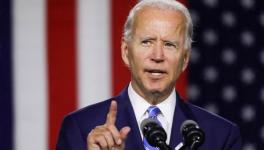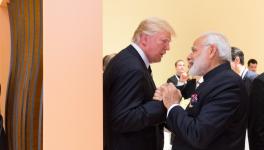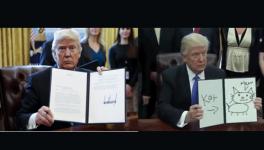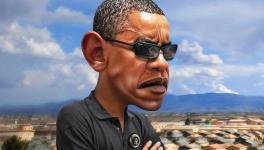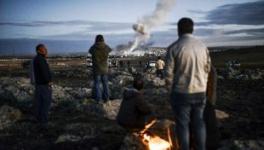Madiba’s Vigil Obama at Robben Island
The vigil around Nelson Mandela is more for us than him; he has perhaps entered the land of dreams, revealing in the Purgatory of revolutionaries, drinking and eating with his comrades (“How I long for amasi, thick and sour!” he wrote to Winnie Mandela from Robben Island on August 31, 1970).
Chris Hani, martyred in 1993 is nearby, along with Albertina and Walter Sisulu. Holding his pipe is Dr. Yusuf Dadoo with Ruth First and Joe Slovo. A too young Anton Lembede is talking to Oliver Tambo and Fatima Meer about the current state of South Africa. They don’t seem happy. They have come to claim Mandela. But those alive don’t want to let him go. He represents something pure that is now lost – the struggle against apartheid and for a just South Africa.
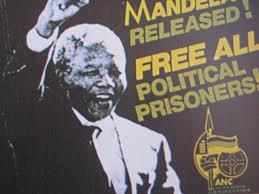
Obama took his family to pay homage to apartheid South Africa’s notorious prison on Robben Island. It is a remarkable facility, whose tiny cells (8 foot by 8 foot) offer one a sense of the suffocation of interminable sentences. A parallel is the British Raj’s Cellular Jail in the Andaman and Nicobar Island (cells of 13 foot by 7 foot), now, like Robben Island, a museum. Obama, who had been there before, wanted his daughters to see the prison and to be as “humbled” as himself by Mandela’s vigil for freedom.
When Obama was a young man, in college at Occidental, he joined the anti-apartheid movement. It was what any decent person did in those days. One had to be hard-hearted to make light of the enormous crime of apartheid, and of the dirty wars in Central America – two movements that marked our generation in the United States. Among those hard hearts was Dick Cheney, then Congressman from Wyoming, who cavalierly called Mandela a terrorist and preferred, along with his president Ronald Reagan, the continuation of Apartheid South Africa. Alongside Cheney was the CIA’s Donald Rickard who lured Mandela to a meeting in August 1962 only to have him arrested by the South African police and begin an incarceration that ended in 1990. Most of the US establishment stood firm in favour of apartheid, right to the very end (so did the current UK Prime Minister David Cameron, then leader of the Federation of Conservative Students, which Sarah Waheed remembers, made posters that said “Hang Mandela and ANC terrorists”).
In his memoir, Obama recalls a February 1981 anti-apartheid rally where he gave a well-received speech. That evening Regina, a friend he made early into his time in college who had initiated him into activist life, congratulated Obama for his speech. He was wary. “I don’t believe we made any difference by what we did today,” he said. When Regina questions him, Obama suggests that her enthusiasm is naïve. “Naïve?” she counters, “You’re calling me naïve? Uh-uh. I don’t think so. If anybody’s naïve, it’s you. You’re the one who seems to think he can run away from himself. You’re the one who thinks he can avoid what he feels.” Then, cuttingly, Regina says, “You always think everything’s about you. The rally is about you. The speech is about you. The hurt is always your hurt. Well, let me tell you something, Mr. Obama,” continues Regina, “It’s not just about you. It’s never just about you. It’s about people who need your help. Children who are depending on you. They’re not interested in your irony or your sophistication or your ego getting bruised. And neither am I.”
Regina leaves. Their mutual friend Reggie comes in, asking why Regina was upset. Obama responds, “She just believes in things that aren’t really there.”
Regina believed in the things that Mandela believed in, “things that aren’t really there,” but that could be conjured up through the fortitude of popular struggle.
Inside the prison, Mandela did not turn inwards. Nor did the other prisoners. They turned to each other, continued to fight for their country’s freedom in creative and important ways (including writing and smuggling their defiance to their comrades outside). One day in the prison yard Mandela saw Nana Sita, or Nanabhai, one of the first to volunteer for the 1952 Defiance Campaign and an inspiration in the darkest days of apartheid. “He was hunched over, and the fact that he was barefoot despite an acute arthritic condition made me uncomfortable in my own sandals,” wrote Mandela in his autobiography. “I wanted to go over to greet him, but we were marching under the eyes of half a dozen warders.” The “things that aren’t really there” for Mandela included the simple act of solidarity and compassion, of worrying about Nanabhai without shoes. Movements are built out of people, who act together to build new communities and to bring their views outwards to others, even in the face of oppression and mockery. That was Mandela’s political life, as it was Nanabhai's. It is what a young Obama found to be unrealistic.
What Obama would find equally impossible is Mandela’s judgment in January 2003 when in the context of the impending Iraq war he asked an audience in Johannesburg, “Why does the United States behave so arrogantly?” “If there is a country which has committed unspeakable atrocities,” Mandela continued, “it is the United States of America. They don’t care for human beings.” He had in mind the prison at Guantanamo, the Robben Island of the US, whose cells, like Mandela’s, are 8 feet by 7 feet with a height of 8 feet, and whose prisoners (to borrow from Dennis Brutus) are “embalmed in time.”
Disclaimer: The views expressed here are the author's personal views, and do not necessarily represent the views of Newsclick.
Vijay Prashad will be in conversation with his editor Andy Hsiao (Verso Books) at the Brecht Forum on July 24 in New York City on his new book, The Poorer Nations: A Possible History of the Global South.
Get the latest reports & analysis with people's perspective on Protests, movements & deep analytical videos, discussions of the current affairs in your Telegram app. Subscribe to NewsClick's Telegram channel & get Real-Time updates on stories, as they get published on our website.









